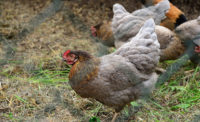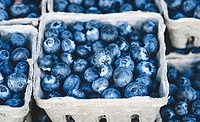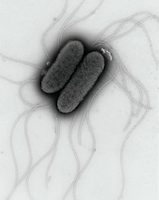Researchers Find Cloths Transfer Salmonella during Tomato Harvesting

Source (for text below and photo at left): The Packer
A new study confirms what mandated Florida tomato safety practices have long recommended: cloths used in harvesting of tomatoes shouldn’t be reused.
For “Salmonella Transfer Potential onto Tomatoes during Laboratory-Simulated in-Field Debris Removal,” University of Florida Institute of Food and Agricultural Sciences researchers Keith Schneider and Michelle Danyluk studied thousands of unwashed mature green tomatoes randomly selected from Florida packinghouses.
The $35,600 study, funded by the Center for Produce Safety in Davis, CA, found significantly high levels of salmonella were transferred to the first, second and fourth tomatoes when 25 tomatoes touched a wet inoculated clean cloth.
However, similar levels of salmonella were transferred to all 25 tomatoes with inoculated wet and dry dirty cloths, according to the research.
“If one muddles through all the science and statistics, what the study is really saying is that transfer is occurring,” Schneider said. “It’s fairly obvious, but now we can say it definitively. Wiping them off doesn’t clean them. It could make a small problem a much larger problem, up to 25 times larger.”
The study shows that rags — as well as gloves — can become sources of further contamination, said Schneider, a professor and food safety microbiologist at the university’s Food Science and Human Nutrition Department.
The study supports Florida Tomato Good Agricultural Practices that prohibits reuse of cloths of any type in the handling of tomatoes, said Reggie Brown, executive vice president of the Maitland-based Florida Tomato Exchange.
Until 2008, when state law prohibited field tomato packing, workers commonly used cloths during harvesting, he said.
“The study as we understand it affirms the use of cloth in cleaning tomatoes whether wet, dry, clean or dirty is not a best practice,” Brown said. “There is a risk of contamination of the product either from a contaminated tomato or a contaminated cloth.”
Funding for the study, published in the July issue of the Journal of Food Protection, covered a number of studies associated with tomato food safety, Schneider said.
Danyluk is an associate professor of food science at the Florida Citrus Research and Education Center in Lake Alfred.
Looking for a reprint of this article?
From high-res PDFs to custom plaques, order your copy today!





